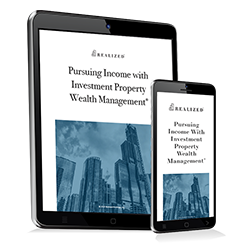
While your expenses will likely decrease once you reach retirement age, many retirees don't factor in potential taxes when budgeting out what their future expenses will be. Many states choose to tax some or all retirement income. You may also live in a state that doesn't tax any type of retirement income. Here’s an overview of how some states tax income.
New Mexico
New Mexico has a tax rate of 1.7% on income of up to $5,500 for individual filers and $8,000 for joint filers. This rate can be as high as 5.9% on income of more than $210,000 for individual filers and $315,000 for joint filers. All retirement accounts and Social Security benefits are taxable. However, a retirement income exemption is available for $8,000 of your income.
New York
The lowest tax rate in New York is 4% on taxable income of $8,500 for individual filers and $17,150 for joint filers. All taxable income above $25 million is taxed at a rate of 10.9%. Keep in mind that an estate tax is required in New York. Property tax rates are also among the highest in the U.S. Social Security benefits and government pensions are exempt from taxes.
North Carolina
North Carolina has a flat income tax rate of 5.25%. By 2027, the income tax rate will decrease to 3.99% on all income. Even though property taxes aren't too high and Social Security benefits are exempt from taxes, most retirement income is taxed.
North Dakota
North Dakota has a tax rate of 1.1% on as much as $40,525 of taxable income for individual filers and $67,700 for joint filers. Any income you make above $45,000 is taxed at a rate of 2.9%. Despite low income tax rates, nearly all private pensions, public pensions, and retirement income are taxed. As of 2021, Social Security benefits aren’t taxed.
Ohio
Ohio has a tax rate of 2.765% for taxable income between $25,001-$44,250. This rate increases to 3.99% on income above $110,650. Keep in mind that most state tax credits for retirement income won't apply in the event that your base income is higher than $100,000. Property taxes are just under $1,500 for every $100,000 of assessed value on your home.
Oklahoma
Oklahoma maintains an income tax rate of 0.5% on as much as $1,000 of taxable income for individual filers and $2,000 for joint filers. The highest tax rate is 5% on income above $7,200 for individual filers and $12,200 for joint filers. Social Security benefits aren't taxed. Retirees are also able to exclude as much as $10,000 of retirement income.
Oregon
Oregon has an income tax rate of 4.75% for taxable income of up to $3,650 for individual filers and $7,300 for joint filers. If you make more than $125,000 as an individual filer or $250,000 as a joint filer, this excess income is taxed at a rate of 9.9%. Oregon has an estate tax and requires taxes on most retirement income. Social Security benefits aren't taxed.
Pennsylvania
Pennsylvania has a flat income tax rate of 3.07%. However, property taxes are high at $1,499 for every $100,000 of assessed value on your home. Most types of retirement income aren't taxed. All local income taxes are levied directly on wages.
Rhode Island
Rhode Island has a 3.75% tax rate for all income below $68,200. Any income you make above $155,050 will be taxed at a rate of 5.99%. Rhode Island has an estate tax and requires retirees to pay taxes on all Social Security benefits if adjusted gross income is too high.
South Carolina
South Carolina has a tax rate of 3% on taxable income between $3,070-$6,150. All taxable income above $15,400 is taxed at a rate of 7%. Retirees will benefit from numerous income tax breaks. For instance, Social Security benefits are fully exempt. An exemption of $10,000 is available for retirement income as well.
No one wants to deal with taxes on their retirement income. Many states throughout the U.S. are considered to be tax-friendly to retirees, which means that you may be able to benefit from low income taxes on your pension plan or no taxes on your Social Security benefits. Even if you live in a state with high retirement income taxes, it's possible that the property and sales taxes are low enough to counteract the high income taxes. Now that you know how your state taxes retirement income, you can better prepare for your future.
Sources:
https://www.aarp.org/money/taxes/info-2020/states-that-dont-tax-retirement-distributions.html
https://smartasset.com/retirement/retirement-taxes
https://www.aarp.org/money/taxes/info-2020/states-that-dont-tax-retirement-distributions.html
This material is for general information and educational purposes only. Information is based on data gathered from what we believe are reliable sources. It is not guaranteed as to accuracy, does not purport to be complete and is not intended to be used as a primary basis for investment decisions. It should also not be construed as advice meeting the particular investment needs of any investor. Realized does not provide tax or legal advice. This material is not a substitute for seeking the advice of a qualified professional for your individual situation.



